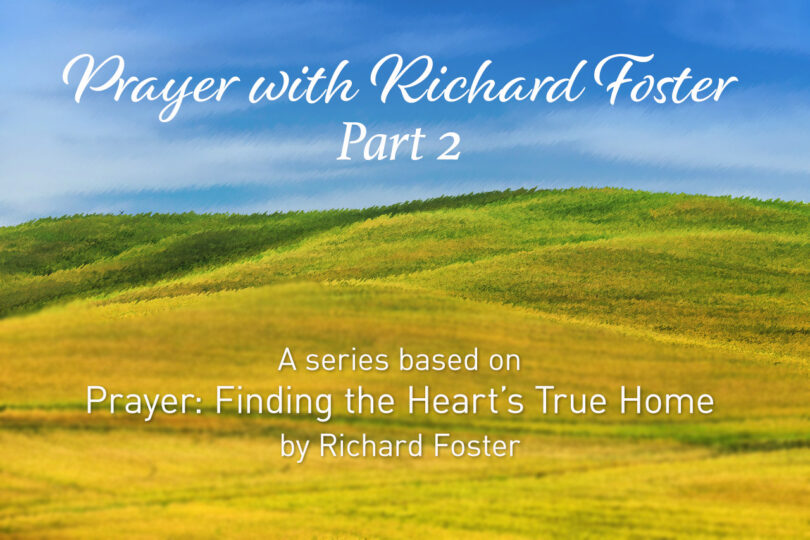The Prayer of the Forsaken
The world is in great need of God’s children to pray and bring heaven to the earth. Author Richard Foster posits that the key to the heart of God is prayer. Prayer is our response to the overwhelming love of God and springs from the act of falling in love with God. Love is the syntax of prayer. Foster has subdivided prayer into twenty-one categories and spends a full chapter exploring each type in his book, Prayer: Finding the Heart’s True Home.
Foster’s second kind of prayer is the Prayer of the Forsaken. The Prayer of the Forsaken occurs when God seems silent or absent. Foster proclaims that times of desertion, absence, and even seeming abandonment seem to be a universal element along the path of faith. God is always present and always with us but sometimes he seems to veil his presence from our limited senses. The Bible uses the metaphor of the desert or the wilderness to describe these times. These dark times come but they are not due to any fault of the Christian but an expected experience to be prayed through. Foster ascribes this is due to the mutual freedom of the shared relationship between the believer and the Deity. Free beings must choose to remain in a free relationship to keep from becoming manipulated or forced. C. S. Lewis expressed this free aspect of God in his character Aslan the Lion in his Chronicles of Narnia series. Aslan represents God in the story and all the creatures of Narnia exclaim that he is not a tame lion…but he is good. Foster attributes this freedom allows God to keep himself from becoming just an icon or an idol in our lives. He also warns that if God always came when we called, we might experience times where we would not be able to endure such a meeting. The Prayer of the Forsaken is a purifying silence with two primary benefits. God uses these times to strip us from dependence on exterior results such as big productions and big miracles. We fall onto the mercy of God to have his complete will and way in our life. The second benefit during these silent times is God stripping from us our dependence on interior results. Our focus on constantly improving ourselves can become based on human striving instead of God’s power at work in us. The silence removes distractions and relies on God’s Word. Foster’s response to feeling forsaken is to keep doing what we know to do while we wait on God. Our trust in God precedes our faith in God. We wait on the Lord and know that he is out to do good things for us. “In God’s time and in God’s way the desert will give way to a land flowing with milk and honey” (p.24).
If you are struggling in the wastelands of life you can take heart in the fact that you are in good company. All of God’s leaders had their moments in the wilderness. Jesus would say be of good cheer for I have overcome the world. We will see it when we stand firm and believe the word of God. Rest in Jesus Christ our savior and our prince of peace.
Foster, Richard J., Prayer: Finding the Heart’s True Home. New York: Harper Collins, 1992.




